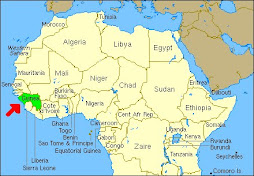April 15, 2008
I can’t shake an odd feeling.
In his book Mountains Beyond Mountains, Paul Farmer described an encounter that is running through my head. Early in his work in Haiti, Farmer had a conversation with another American doctor working here. The latter was preparing to return to the United States definitively. Farmer asked the other doctor how he was feeling about his imminent departure, and it was clear the doctor was ready to disconnect from Haiti, and delve back into a life of Americana. Farmer realized he was the opposite, that he couldn’t just “turn off” Haiti when he wasn’t here. He couldn’t just forget about it all.
Maybe prior to the last ten days, I could have unplugged from Haiti and walked away, like the perky American doctor, ready to get back to full-time USA! But ignorance is bliss, and I don’t feel I have the luxury of ignorance any more. The food riots of last week and the continued unrest leave an indelible imprint over me. Living in Haiti I am forced to notice what in America we largely can’t be bothered to think about. But I am forced to care because the food riots are not just in Haiti. Yesterday, CNN reported the following:
"This is the world's big story," said Jeffrey Sachs, director of Columbia University's Earth Institute.
"The finance ministers were in shock, almost in panic this weekend," he said on CNN's "American Morning," in a reference to top economic officials who gathered in Washington. "There are riots all over the world in the poor countries ... and, of course, our own poor are feeling it in the United States."
Looking for food in the dump.
Many things happen in Haiti, poorest step-child country of the Western hemisphere, where people can seemingly shake their heads and say, “That’s just Haiti.” Our infamous mud cakes are an example. But the hunger riots are in Egypt, CAMEROON, Burkina Faso, Senegal, Bangladesh, Mozambique…! With food prices rising on staples by 75% in two months time, it seems life as we know it is changing.
I’m not scared, but wide-eyed alert, as I am soon going to live the next two years on a Cameroonian salary. About $11 a day. It’s what many of my Haitian colleagues at Fonkoze earn. In contrast, some 65% of Haitians live on $1 dollar a day; 75% “get by” on $2 daily. I’ll no longer be in the category of thinking about filling my gas tank, but my belly. It’s a shift for me. How much longer until the shift creeps upward through class, salary range, and national borders?
 Downtown Port-au-Prince, April 12
Downtown Port-au-Prince, April 12
See the full CNN article here: http://edition.cnn.com/2008/WORLD/americas/04/14/world.food.crisis/?imw=Y&iref=mpstoryemail
And again, Haiti's hunger on the front page of today's New York Times: http://www.nytimes.com/2008/04/18/world/americas/18food.html?_r=1&oref=slogin



No comments:
Post a Comment